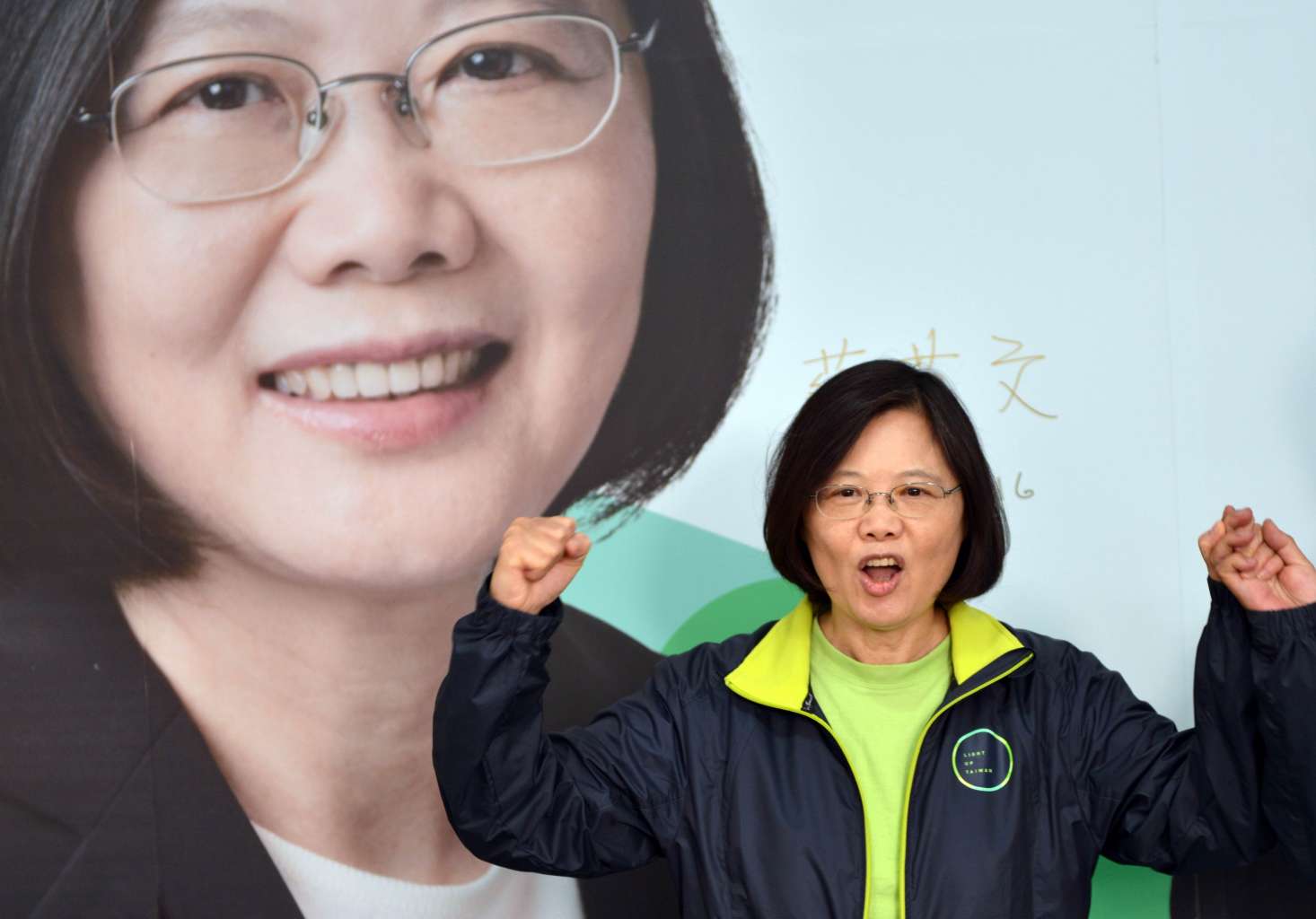Women's rights campaigners pin hopes on new Taiwan leader Tsai to address entrenched sexism
Sign up now: Get insights on Asia's fast-moving developments

The election of Ms Tsai Ing-wen as President is fuelling hopes that Taiwan can break free of the sexism rooted in its culture.
PHOTO: AFP
TAIPEI (AFP) - Once derided as unfit for leadership because she was a "skirt-wearer", the election of Ms Tsai Ing-wen as Taiwan's first female president is fuelling hopes the island can break free of the entrenched sexism rooted in its traditional culture.
The 59-year-old swept to power with a landslide victory on Saturday (Jan 18), ending eight years of Kuomintang rule, as voters turned their backs on closer ties with Beijing.
Ms Tsai, who leads the main opposition Democratic Progressive Party (DPP), has said Britain's first female prime minister, the "Iron Lady" Margaret Thatcher, is one of her inspirations.
"Tsai's election is a landmark for the women's rights movement in Taiwan," said DPP lawmaker Yu Mei-nu, also a women's rights lawyer.
But while her victory is an illustration of the march of women into politics in the last 20 years, sexist slurs during recent and past campaigns put the spotlight on antiquated views that still run through Taiwanese politics and society.
Taiwan has a high number of women participating in politics, but at the same time they face challenges due to a legacy of a cultural tradition that favours boys over girls, and pushes women's roles as primarily that of caregiving.
Ms Tsai has frequently been criticised for being unmarried and had to bat away questions about her sexuality.
Rival presidential candidate James Soong was forced to apologise over a post on his party's Facebook page during recent campaigning which asked: "How can single women understand the needs of a family?"
The head of a minor conservative party also accused Ms Tsai of being "dangerous" because single people make "extreme" decisions.
Such attacks were nothing new for Ms Tsai - even from her own party: A senior DPP official had previously questioned her ability to lead, saying a "skirt-wearer was unfit" to take the helm.
Things are changing - the once critical DPP official openly endorsed Ms Tsai's candidacy this time and Mr Soong's comments triggered public fury - but there is a long way to go.
"Taiwan isn't as conservative as before, but deep-rooted chauvinistic views in our patriarchal culture can't be overturned right away," says Ms Chiang Yueh-chin, head of women's rights group Taipei Awakening Association.
Ms Tsai has given little detail of her personal life, but did respond after questions on her sexuality ahead of her first presidential bid in 2012.
"I am not angry, it doesn't bother me," she said at the time.
"I hope society will give more space to single women, more understanding, more respect and more tolerance."
Taiwan has one of the highest rates of women's participation in Parliament in Asia. In legislative elections alongside the presidential vote, 38 per cent of seats went to women, a 5 per cent increase.
However, the higher end of politics is still heavily weighted towards an old-boys network - only three out of 30-plus Cabinet ministers are women.
Campaigners have called on Ms Tsai to redress the balance when she takes office in May.
A former law scholar, Ms Tsai is known as a legal specialist skilled in negotiation, rather than a women's advocate, and her domestic platform revolves largely around the island's economic woes.
"Some of the women's issues are tied into wider economic and social policies. As a leader she will decide on broad policy direction and I believe she will be promoting gender equality," said lawmaker Yu.
It will be a challenge for Ms Tsai to alter a cultural mindset where women are expected to care for their children, parents and in-laws, often at the expense of their careers.
As male offspring are preferred in Taiwanese society, it is not uncommon for women to receive less inheritance, and some are forced to relinquish their share.
Workplace inequality is also a problem - women are paid an average 15 per cent less than men and some say they have lost their jobs once they become pregnant, despite legal protection.
Despite her admiration of Lady Thatcher, Ms Tsai's reputation as a calm thinker and tough negotiator have drawn other comparisons.
"I think she is more like (German Chancellor) Angela Merkel," said Dr Jean-Pierre Cabestan, a political science professor at Hong Kong Baptist University.
"More of a steel lady in a velvet glove."


